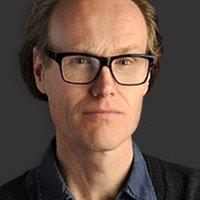Five Hidden Gems: Will Gompertz reviews culture online ★★★★★
- Published
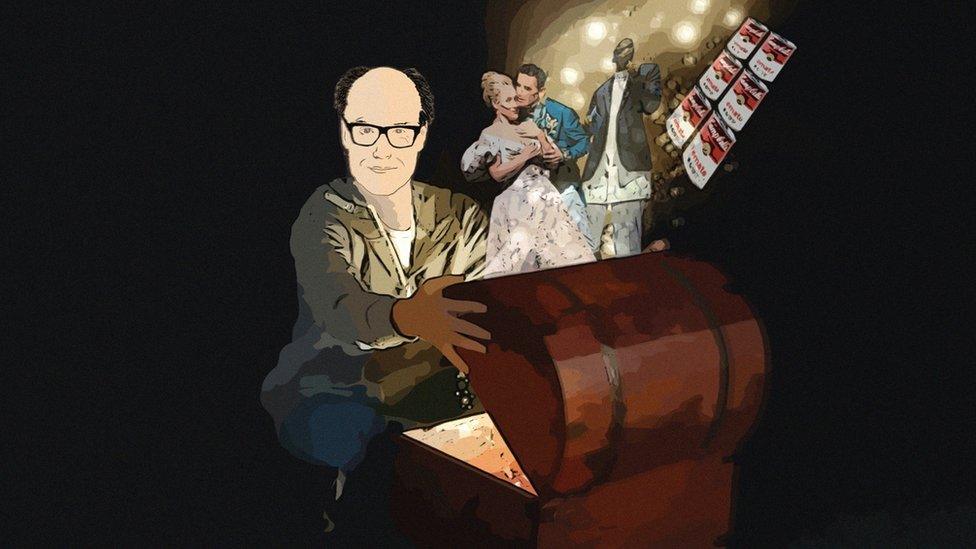
Given the circumstances we find ourselves in I am going to take a slightly different approach to the review this week. As opposed to selecting a single subject to critique, I thought it would be more helpful to pick out five 5-star (IMO) hidden gems freely accessible online, which can be enjoyed at home.
I've tried to mix it up a bit, taking in a classic kids TV series, an amazing speech, a great documentary, magnificent opera, and tip top pod.
First up, Hector's House:
A children's TV series that ran on the BBC from 1968 to 1975.
It's low tech (hand puppets), low concept (a male dog and female cat share a house next door to a frog) and utterly brilliant. It doesn't matter what age you are, Hector's House is a guaranteed five-minute hit of faultless, charming entertainment.

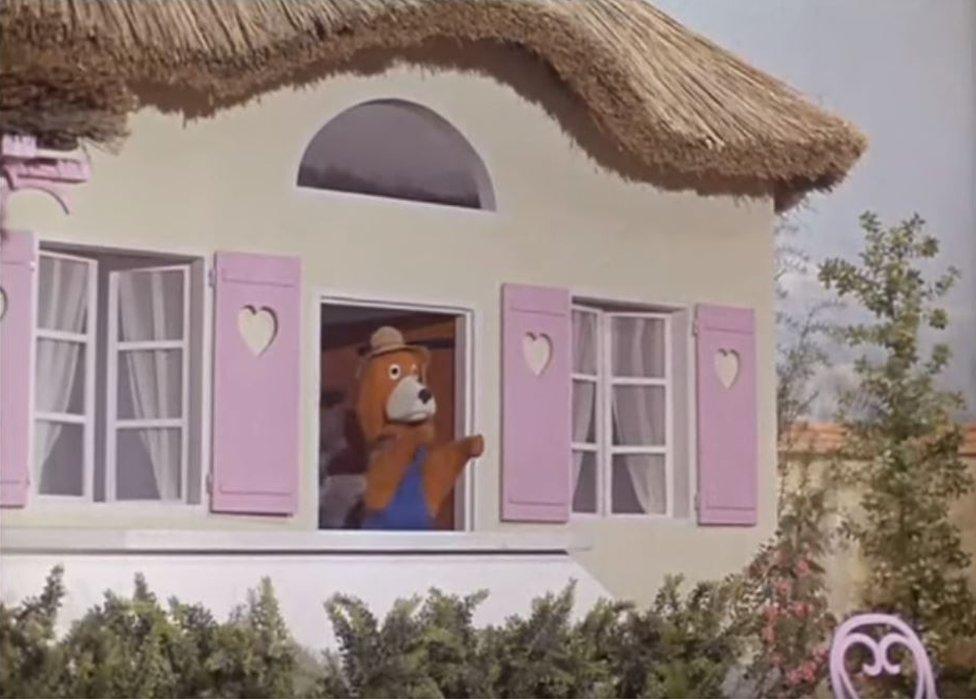
Hector's House was a beautifully French-made children's TV series using hand puppets, and was first shown on the BBC in 1968

Hector is a doe-eyed, floppy-eared hound prone to pomposity and delusion who lives with Zsazsa, a clever cat who gently teases him with willing help from their friend next door, Kiki the frog.
The show was imported from France (where it was called La Maison de Toutou) and owes plenty to the classic slapstick comedies of Jacques Tati, a genius of post-war French cinema who captured better than most, that off-kilter feeling of being at odds with the modern world.
You can find much of his work online, external, including the fabulous 1958 film, Mon Oncle (featuring stunning architecture).

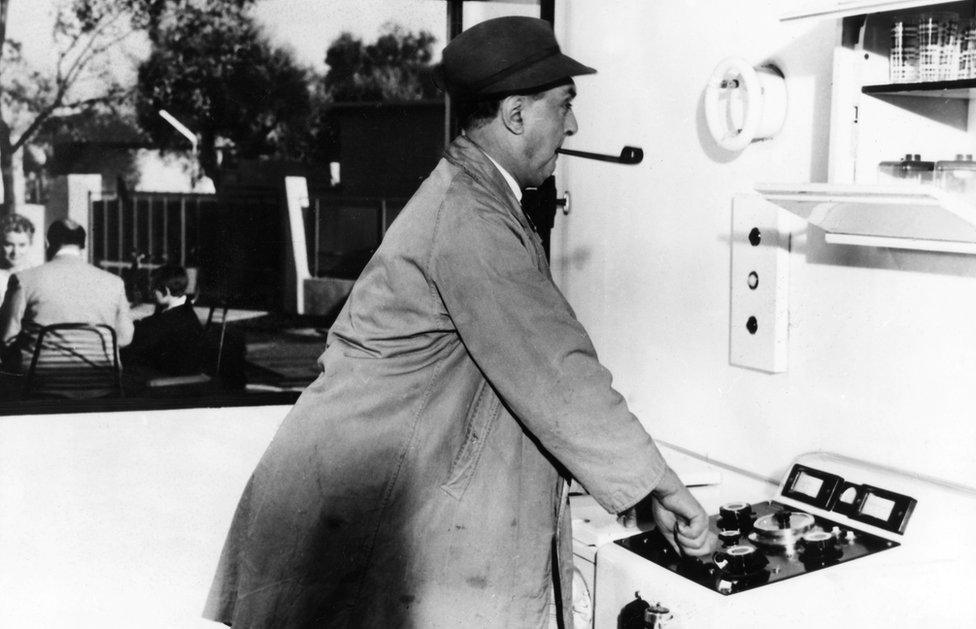
Jacques Tati's humour (seen here working on his acclaimed film, Mon Oncle) can be seen in Hector's House

While Hector was in his house, the straight-talking Australian art critic Robert Hughes was on the road in New York filing a report on contemporary art in a documentary called Pop Goes to the Hayward (1969), which is available on the BBC iPlayer.
It's a compelling watch, not least for Hughes himself, who gives a masterclass in the art of documentary-making: interviewing with polite scepticism, while delivering his superbly written script with spiky belligerence.
He keeps out of shot unless absolutely necessary (such as being cast for a sculpture by one-time chicken farmer, George Segal), and lets the artists do the talking (Andy Warhol, Roy Lichtenstein, Claes Oldenburg), which is what you want because they were depicting a new way of living that would become our way of life.
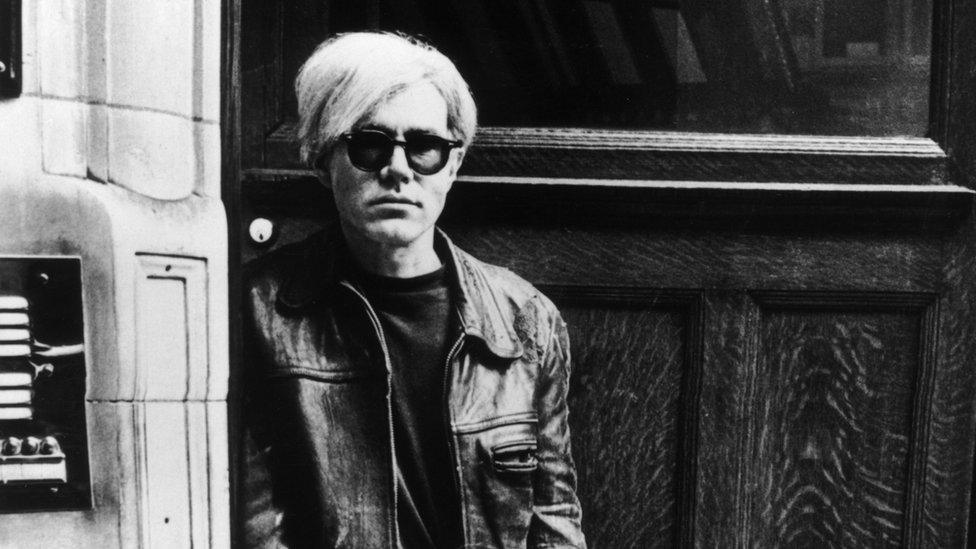
Andy Warhol speaks engagingly in Robert Hughes's fascinating documentary Pop Goes to the Hayward, 1969

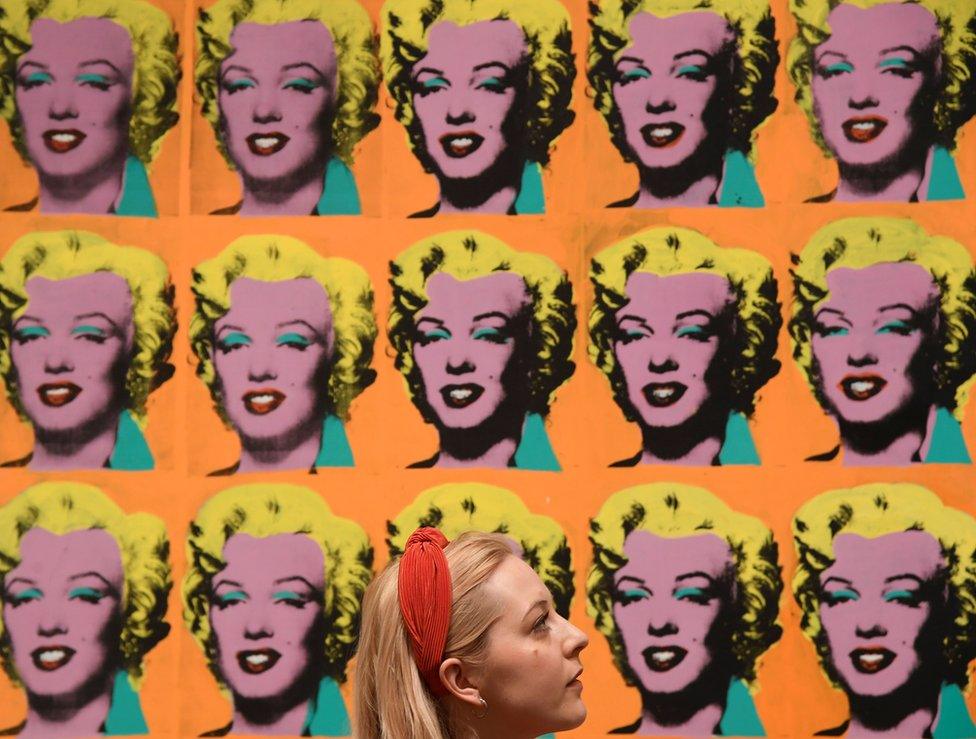
Warhol's celebrated Marilyn Diptych is part of a retrospective of his works at Tate Modern in London, which like other institutions has closed because of the coronavirus

Like Hector's House, these American artists owed a huge amount to a French genius, in their case the pioneer of conceptual art, Marcel Duchamp, who you can watch here in conversation with Dame Joan Bakewell in 1968.

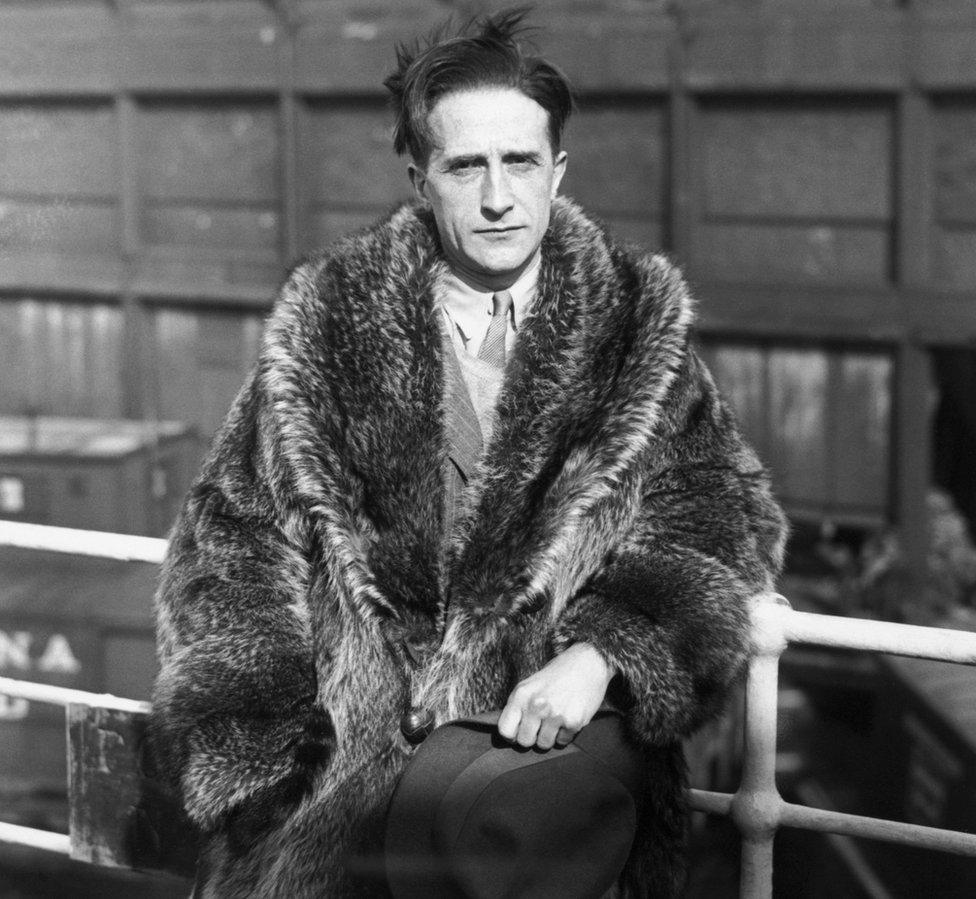
The great Frenchman Marcel Duchamp, famous for his urinal, was a major influence on American Pop artists

On the shelf to my left are three non-fiction books that I constantly refer to for inspiration, only to put them down again in desperation, realising that I can never come close to the essential talent of the authors.
They are, in chronological order: The White Album by Joan Didion: a collection of her journalistic essays from the 1960s and 70s. The Age of Movies by Pauline Kael: a collection of her film criticism for the New Yorker and others. And, The Most of Nora Ephron: a collection of all her work from early journalism to mid-career movie scripts (inc. When Harry Met Sally).
All three writers are American and share a strong cultural connection, not least the influence of the so-called New Journalism of the 60s - a literary form of reporting pioneered by the likes of Didion, Tom Wolfe and Gay Talese, who wrote perhaps the most famous article in the genre for Esquire magazine called, Frank Sinatra has a Cold (1965), external, which is very good.
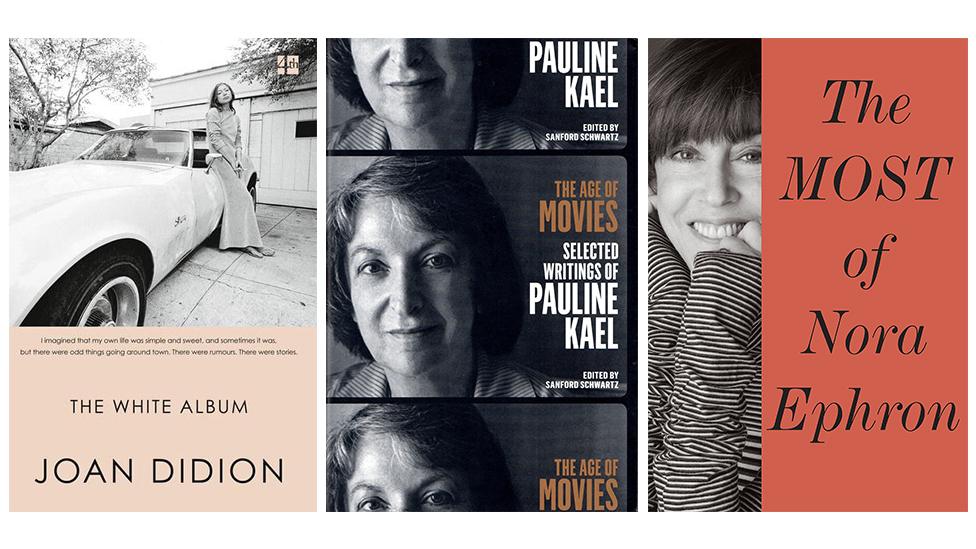
These three books by American writers made a major contribution to the cultural history of the US
Few have been able to match them, but some do so occasionally. The British writers Olivia Laing and Zadie Smith are excellent non-fiction essayists, as was the late David Foster Wallace, an American writer and academic whose work reads like an ingenious form of stand-up comedy. You can read most of it online., external
I'd recommend the essay Federer as Religious Experience. He was also a compelling - albeit nervous - public speaker, who delivered a memorable speech to Kenyon College's 2005 graduating class., external
It is called This is Water and should be compulsory listening/reading (the text is also online) for anyone with an ounce of curiosity.

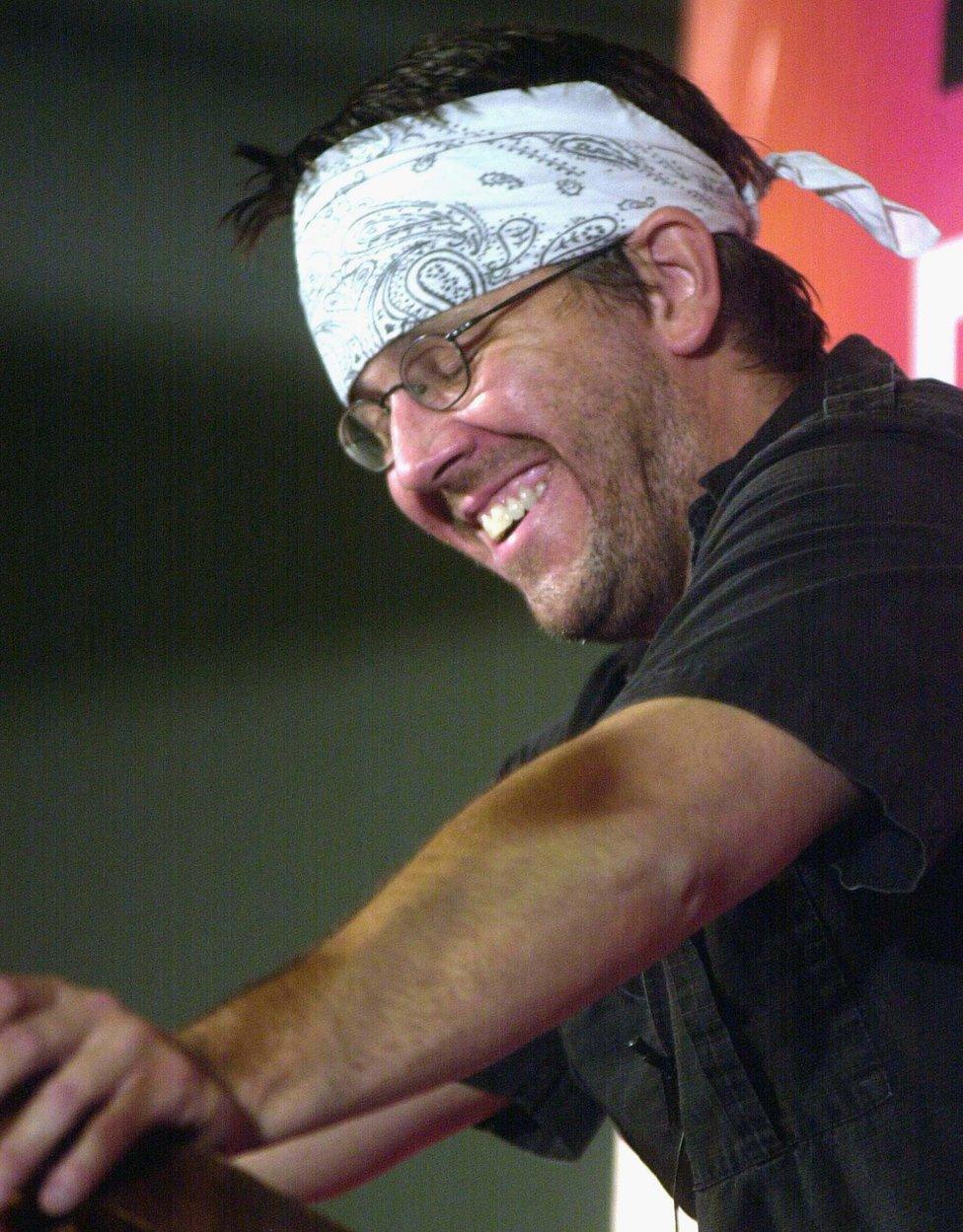
David Foster Wallace's essay This is Water offered students a wise outlook on life (seen here reading from a selection of his writings in New York in 2002)

There will be a lot of new content coming on stream in the coming weeks, including contributions from many of the venues that are currently closed but keen to continue to serve their audiences. The BBC announced earlier this week that it would be working with museums, galleries, arts centres, comedians, poets and a whole host of talented folk to help bring their work to the public through TV, online, radio and podcast.
The Met in New York has responded very quickly and impressively. It is uploading an opera a night, filmed to a very high standard and performed by the best singers in the world. The shows are from the Met's back catalogue, for which you would normally have pay but can now see for free., external
I have just watched La Traviata and was blown away by the production values and all-round quality of the presentation.
If you're not sure about opera, I think the Met might convert you.
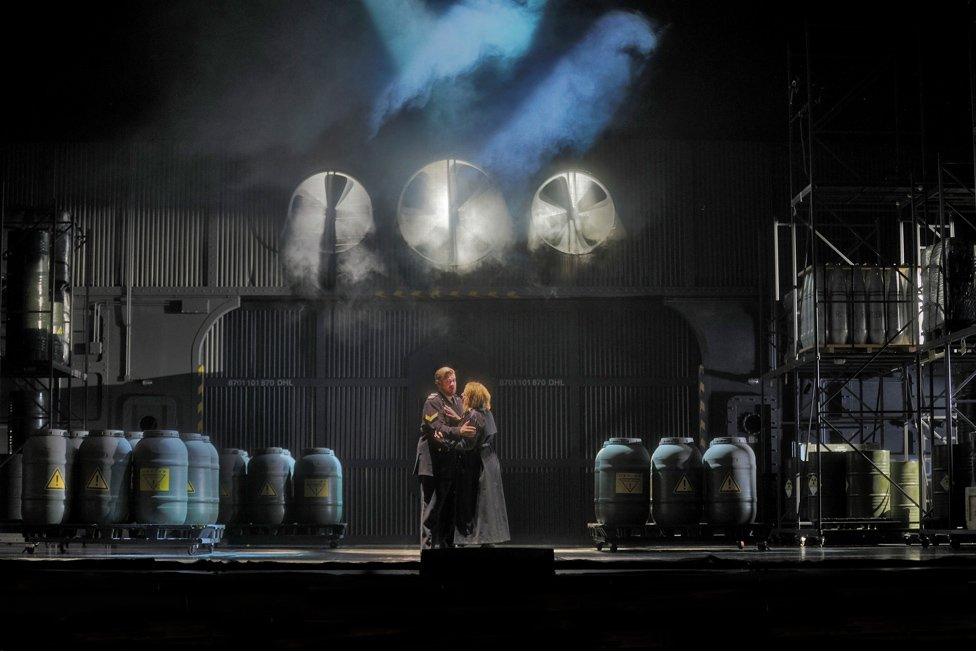
Among the Metropolitan Opera's magnificent screenings coming up is Wagner's Tristan und Isolde
Lastly, a podcast pick.
There are so many, but for this moment in time, I'm going with the award-winning Have You Heard George's Podcast by the London-born performer and writer George Mpanga who goes by the stage name George the Poet.
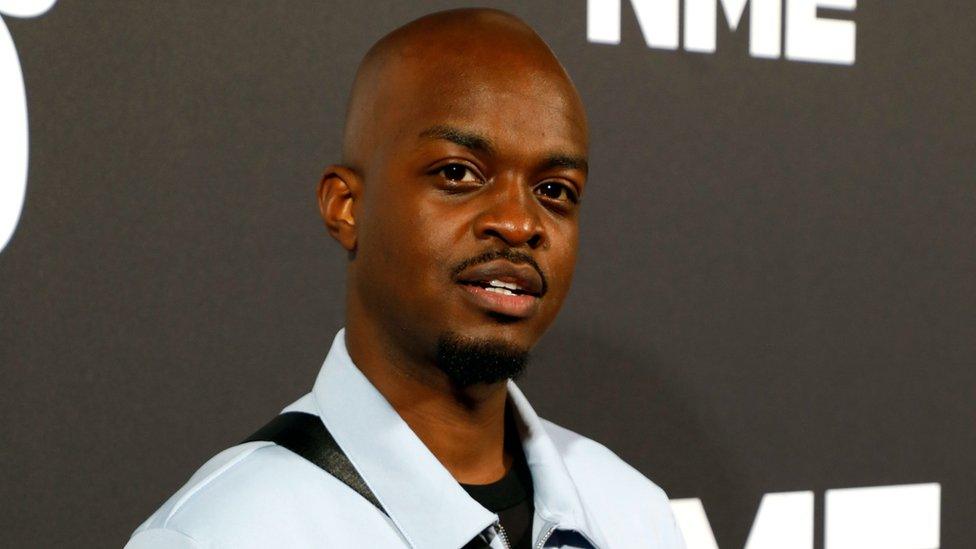
George the Poet offers a fresh take on inner city life in his podcast
Admittedly, it is not exactly a hidden gem, but it is a rare jewel. Each episode is presented in his informal, gentle style that lyrically coaxes you into his vividly observed vision of our world.
I like what he sees and what he says and hopefully you will too.
That's my five 5-star nuggets of free content gold but what about yours?
Tweet your suggestions to me @WillGompertzBBC, external or email me entertainment.news@bbc.co.uk, and maybe that could make the basis of next week's review.
Recent reviews by Will Gompertz
